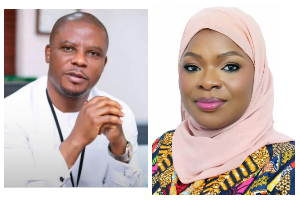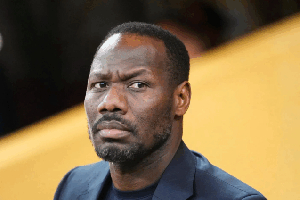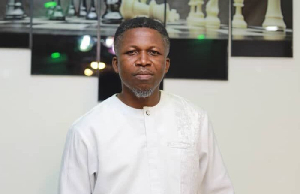This popular American expression came forcefully to mind as I surveyed the past week in the polity. Several things leap to the political eye as I write this prior to the public showing of yet another explosive Anas tape which in itself deserves some importance as death now stalks the exposés and threatens all journalists as they go about their work. As the next election slated for 2020 gets nearer, and the election of the presidential candidate for the opposition National Democratic Congress (NDC) was decided last weekend, we must brace ourselves for events which challenge our readiness to accept or believe what we are fed with in the media.
In spite of all the other significant matters which have made the news since I last appeared, the Ayawaso West Wuogon Commission still commands probably the most importance.
SoNA
Last week Thursday, our President, Nana Addo Dankwa Akufo-Addo, presented his third State of the Nation’s Address (SoNA) to Parliament. I noted only three things that occurred in the presentation, and after, worth commenting on. Two days later, on Saturday, the opposition NDC also held its presidential primaries and chose as predicted, the former President, John Mahama, by a handsome margin to face whoever the ruling New Patriotic Party (NPP) will present for our next election in December 2020.
That same day, our sister country Nigeria, also held its presidential election. We now know the incumbent President Muhamadu Buhari, won but with a 35 per cent voter turnout, there would be no end of comparison with our own by-election at Ayawaso which recorded the lowest turnout so far in any election in Ghana since 1951 a derisory 19 per cent.
Sittings
But by far the most attention-grabbing event is the ongoing sittings of the Justice Emile Short Commission on the Ayawaso West Wuogon by-election violence, restricted to one polling station at La Bawaleshie, adjacent to the residence of the NDC parliamentary candidate.
The violence occurred pari passu with the election itself as the cameras of television stations rolled, guaranteeing a low turnout, the same thing that happened in Nigeria. There is adequate food for thought in similar scenarios in the Nigerian elections.
Is the media an unwitting agent in the destruction of democracy, is a valid question. The late Professor Kofi Awoonor called it using democracy to destroy democracy. But then, he was referring to the undemocratic military government of General Kutu Acheampong.
The Ayawaso Commission sittings remind me of the Special Investigations Board (SIB) set up in late 1982 by the military government of then Provisional National Defence Council (PNDC) chaired by then Flight Lieutenant Jerry Rawlings to find the killers and the motive for the abduction and murder of the three judges and a retired army officer earlier in June 1982.
Several things about the SIB sittings of 1982 and the Short Commission sittings of 2019 leap to the eye. I have in an earlier epistle confessed that I attended all the sittings of the SIB except one.
Unlike the SIB, the Short Commission has televised hearings and radio coverage so one can sit at home or in the office and watch or listen on radio.
The SIB was set up after fierce pressure from civil society led by the Ghana Bar Association, the Christian Council, the Professional Bodies Association etcetera which didn’t trust the Preliminary Investigative Team headed by Police Commissioner, Tetteh Ahinakwah with Superintendent Jacob Yidana.
There was no free press in PNDC times and I wonder if those who are condemning the victims of the Ayawaso violence are related to the perpetrators ideologically at least, to the SIB suspects of 37 years ago using the free media of today to spew unkind thoughts and statements about the Ayawaso victims. We are really living in interesting times, just as the state press did against the SIB then in 1982. The Short Commission was an idea of the President who downplayed the police investigatory involvement and necessary prosecutions with this device which prevents prosecution using evidence gathered at the commission.
Presidential suggestion
Which leads me to the presidential suggestion at the SoNA that all parties ban vigilante groups and the leaders must meet in a week to fashion this out. I find this suggestion very puzzling. As our President, he is the leader of the NPP and he needs no prompting to begin such a process personally if he deems it essential for our stability.
Secondly, in spite of the majority of ruling parties so far in Parliament, our Presidents do not have any legislative powers, only assenting authority. Is he transferring the problem to inchoate party leadership? Unsurprisingly, nothing much has happened since the order or suggestion as I write.
I note that again at the SoNA event in Parliament, the President did not utter a word about the tumbling cedi. Why? And Parliament seems to be praising itself for not placarding during the speech by the President. Nowhere in the Standing Orders is behaviour in the presence of the President in Parliament referred to and not reacting actually gave me the impression that nothing important was said.
The election of former President Mahama last Saturday has ratcheted up the political temperature. I was pleasantly surprised the NDC had an effective and working collation system which gave us all accurate projections by 8 p.m last Saturday.
It has effectively matched the ruling NPP IT for IT in this technological department. And President Mahama contested and won the primaries, boosting NDC confidence in the process, something which Goodluck Jonathan did not do in Nigeria, and which is a stark difference from that scenario. NDC has given itself what it needs to have a credible chance the next time round. Leadership is key. As they say in America, don’t get mad, get even.
Opinions of Saturday, 2 March 2019
Columnist: Abura Epistle















